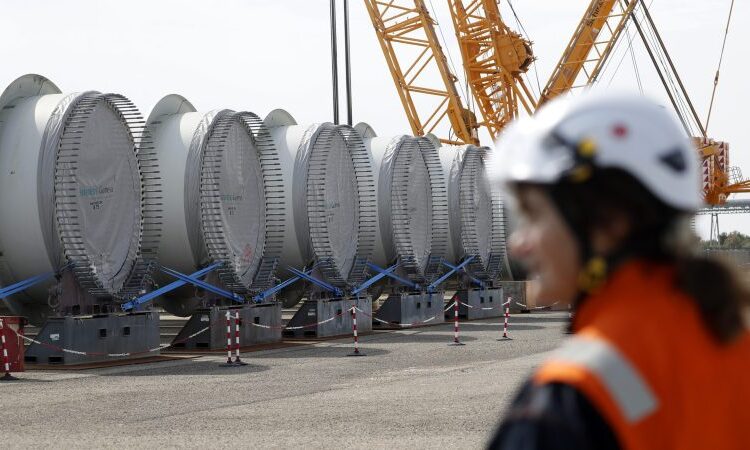
As European employers complain about skills shortages, a study shows that European workers feel financially stressed, that they are more unlikely to upskill than US workers and that they feel less confident that their employers will help pay for their further education.
The study, made by consultancy PWS, surveyed nearly 54,000 workers across the globe, including more than 15,000 from 14 EU countries, and found that workers in Europe and around the world feel financially more stressed than in 2022.
Only 36% of EU workers feel like they have any leftover money after paying the bills at the end of the month, which is seven percentage points lower than the previous year.
“People are feeling really stressed and that goes all the way up the income scale,” James Morris, PWC’s director of global corporate affairs and advocacy said at an event in Brussels in early November. Clearly, inflation is being felt by workers even though the economy is still holding up quite well and unemployment levels at record lows.
At the same time, workers seem to be willing to do something about this, with nearly a quarter of polled EU workers planning to change jobs in the next 12 months – a significant increase compared to last year. With unemployment at a low level and employers across the continent griping about labour shortages, this openness to change could lead to rising wages.
Preparing for the future
However, the financial stress might also influence how employees plan and invest for their future, making them focus on short-term liquidity problems instead.
Compared to their counterparts in the US and in the Asia-Pacific region, EU workers are less likely to think that their job will require them to significantly change their skills in the next five years. Only 26% of polled EU workers were of this opinion in contrast to the 44% of polled workers in the Asia-Pacific region.
In the EU, this number varies widely depending on the level of specialisation of workers. Workers with specialist training are 3.5 times more likely to think that their required skillset will need to change than non-specialist EU workers, according to the study.
The study also finds that EU workers are less confident than US or Asian workers that their employers would support them in their efforts to get new skills.
The structure of the European economy might be one of the underlying reasons for this relative weakness. Speaking at the PWC event, Jobs Commissioner Nicolas Schmit said that most of the companies were aware of the need for investment, but not everybody was able to follow through on this awareness.
“When I talk to the big automotive companies, they are doing [the investments], really. When we are talking to some of their suppliers, they have more difficulties already,” he said.
“And when you are talking to many SMEs, well, they do not know exactly how they can manage it because sometimes they do not have the money for the investment of they do not have the staff.”
However, Schmit also sees an opportunity in the current labour shortages, arguing that while it used to be the employers who were “in the driving seat”, the shortages now turned the table in favour of the employees.
“You cannot just say, ‘well, I will find an extraordinary guy or lady somewhere outside.’ So you have to invest much more in your existing workforce,” Schmit said.
And, as SMEs are at a disadvantage when it comes to coming up with these investments, Schmit also called for support from public money to get this investment going.









